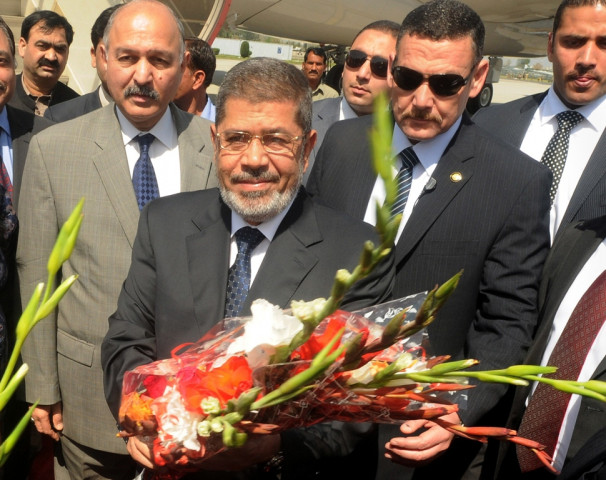Egyptian president’s visit
President Mursi and Zardari are probably worried about foreign intervention that ended up destroying Iraq.

Egyptian President Mohamed Morsi (C) receives flowers upon his arrival at the Chaklala military airbase in Rawalpindi. PHOTO: AFP
Pakistan and Egypt are among the largest Muslim countries in the world, and hence, are in a position to influence opinion in the rest of the Muslim world. It is notable, then, that both the presidents agreed that the international community should take a non-interventionist stance over the civil war in Syria, which is a continuation of the Arab Spring that swept President Mursi into power. In the end, however, both President Mursi and President Zardari are probably more worried about causing the kind of foreign intervention that ended up destroying Iraq.
Egypt, like Pakistan, is also grappling with the problem of its future relations with the West. The dictatorships in both countries were propped up with Western, particularly US, military aid and the mood in Egypt and Pakistan is of a decidedly anti-American bent. President Mursi, much like President Zardari, has navigated this by continuing to be a major recipient of US aid, even while vocally speaking out against its past support for dictators. Pakistan has walked the same tightrope by publicly denouncing US drone attacks even while silently acquiescing to them. The complete absence of the US from the talks between President Mursi and President Zardari shows just how delicately the two countries have balanced the American question.
Published in The Express Tribune, March 20th, 2013.













COMMENTS
Comments are moderated and generally will be posted if they are on-topic and not abusive.
For more information, please see our Comments FAQ